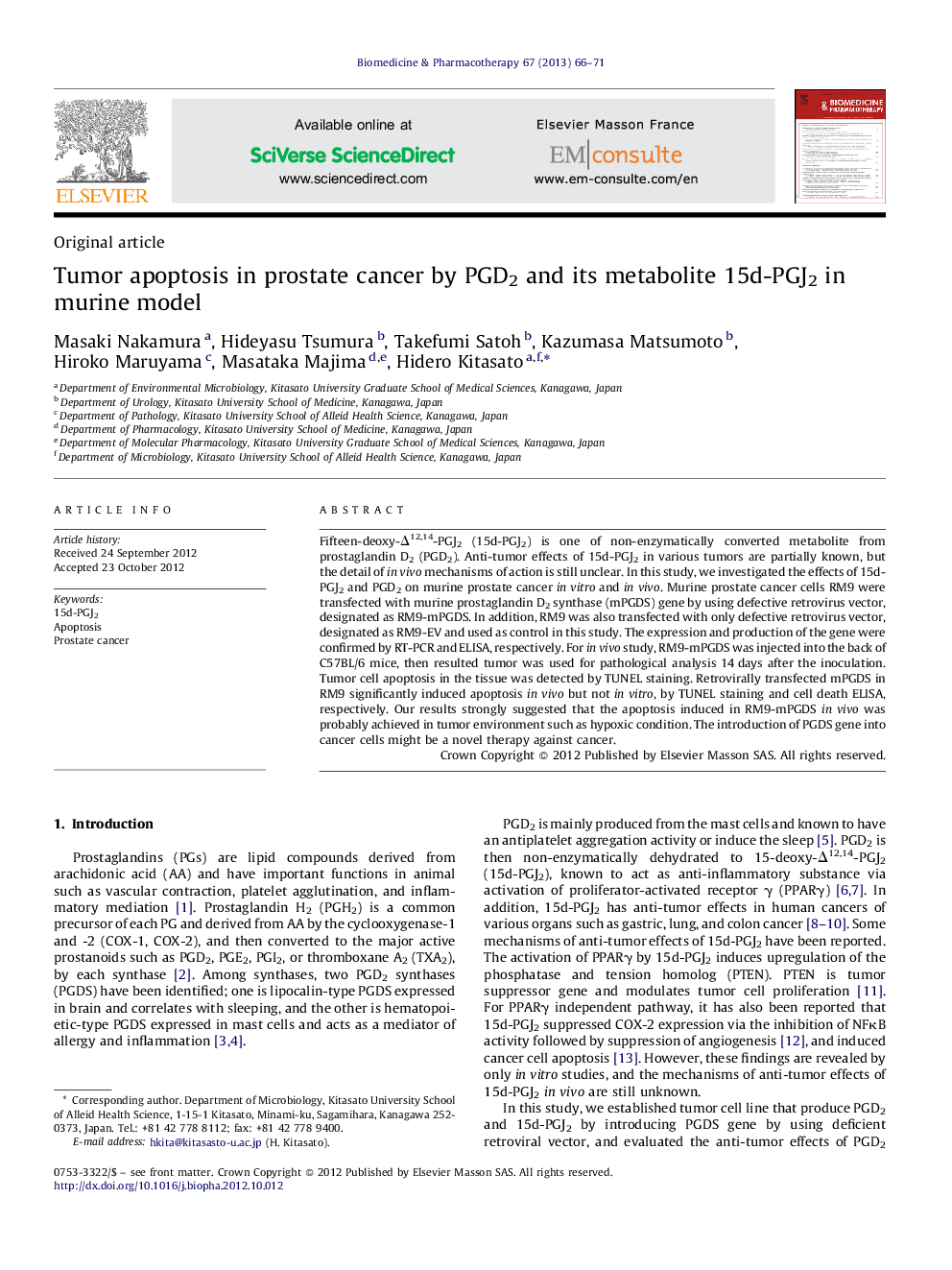| Article ID | Journal | Published Year | Pages | File Type |
|---|---|---|---|---|
| 2525200 | Biomedicine & Pharmacotherapy | 2013 | 6 Pages |
Fifteen-deoxy-Δ12,14-PGJ2 (15d-PGJ2) is one of non-enzymatically converted metabolite from prostaglandin D2 (PGD2). Anti-tumor effects of 15d-PGJ2 in various tumors are partially known, but the detail of in vivo mechanisms of action is still unclear. In this study, we investigated the effects of 15d-PGJ2 and PGD2 on murine prostate cancer in vitro and in vivo. Murine prostate cancer cells RM9 were transfected with murine prostaglandin D2 synthase (mPGDS) gene by using defective retrovirus vector, designated as RM9-mPGDS. In addition, RM9 was also transfected with only defective retrovirus vector, designated as RM9-EV and used as control in this study. The expression and production of the gene were confirmed by RT-PCR and ELISA, respectively. For in vivo study, RM9-mPGDS was injected into the back of C57BL/6 mice, then resulted tumor was used for pathological analysis 14 days after the inoculation. Tumor cell apoptosis in the tissue was detected by TUNEL staining. Retrovirally transfected mPGDS in RM9 significantly induced apoptosis in vivo but not in vitro, by TUNEL staining and cell death ELISA, respectively. Our results strongly suggested that the apoptosis induced in RM9-mPGDS in vivo was probably achieved in tumor environment such as hypoxic condition. The introduction of PGDS gene into cancer cells might be a novel therapy against cancer.
